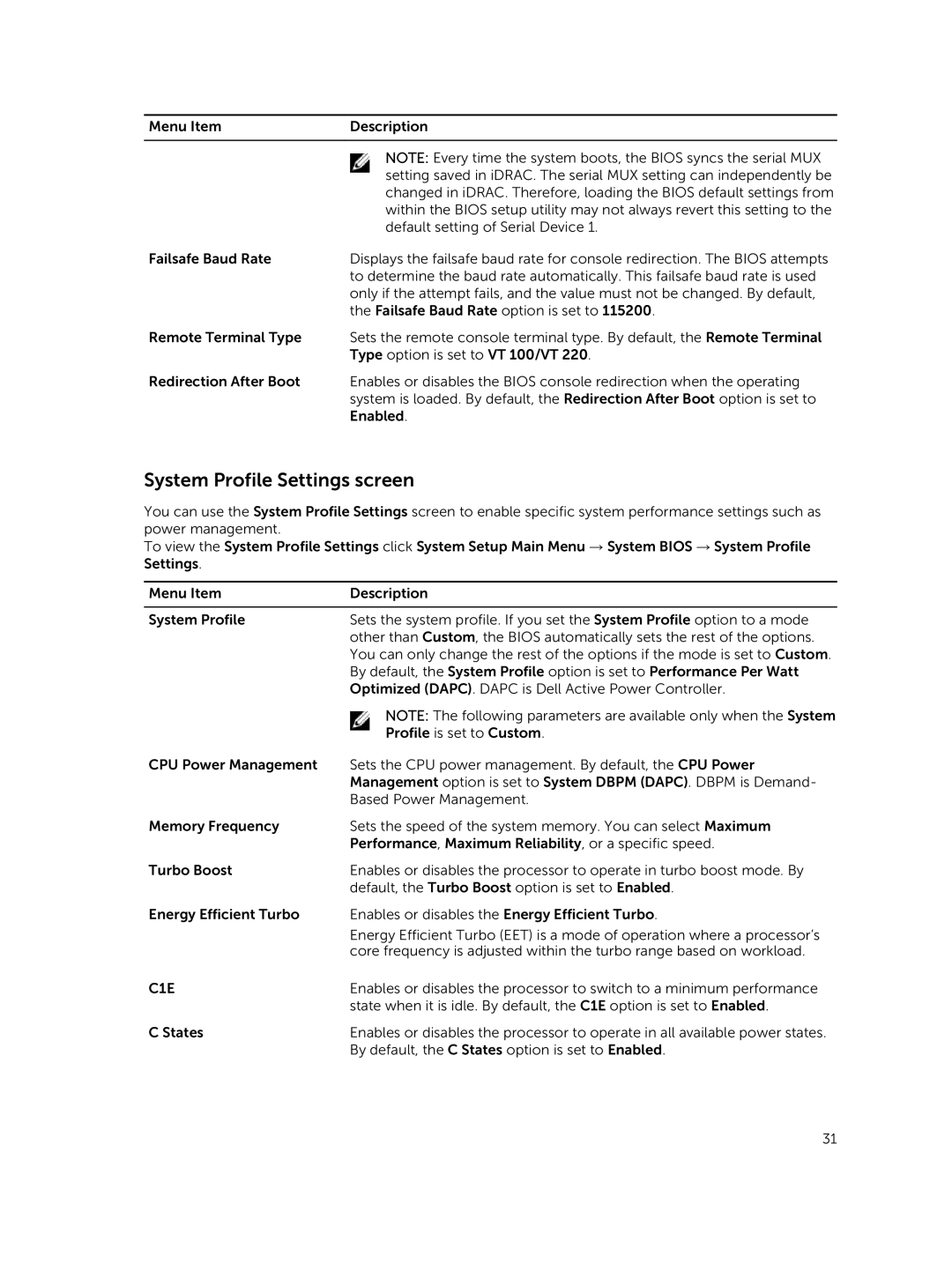
Menu Item | Description |
|
|
| NOTE: Every time the system boots, the BIOS syncs the serial MUX |
| setting saved in iDRAC. The serial MUX setting can independently be |
| changed in iDRAC. Therefore, loading the BIOS default settings from |
| within the BIOS setup utility may not always revert this setting to the |
| default setting of Serial Device 1. |
Failsafe Baud Rate | Displays the failsafe baud rate for console redirection. The BIOS attempts |
| to determine the baud rate automatically. This failsafe baud rate is used |
| only if the attempt fails, and the value must not be changed. By default, |
| the Failsafe Baud Rate option is set to 115200. |
Remote Terminal Type | Sets the remote console terminal type. By default, the Remote Terminal |
| Type option is set to VT 100/VT 220. |
Redirection After Boot | Enables or disables the BIOS console redirection when the operating |
| system is loaded. By default, the Redirection After Boot option is set to |
| Enabled. |
System Profile Settings screen
You can use the System Profile Settings screen to enable specific system performance settings such as power management.
To view the System Profile Settings click System Setup Main Menu → System BIOS → System Profile Settings.
Menu Item | Description |
|
|
System Profile | Sets the system profile. If you set the System Profile option to a mode |
| other than Custom, the BIOS automatically sets the rest of the options. |
| You can only change the rest of the options if the mode is set to Custom. |
| By default, the System Profile option is set to Performance Per Watt |
| Optimized (DAPC). DAPC is Dell Active Power Controller. |
| NOTE: The following parameters are available only when the System |
| Profile is set to Custom. |
CPU Power Management | Sets the CPU power management. By default, the CPU Power |
| Management option is set to System DBPM (DAPC). DBPM is Demand- |
| Based Power Management. |
Memory Frequency | Sets the speed of the system memory. You can select Maximum |
| Performance, Maximum Reliability, or a specific speed. |
Turbo Boost | Enables or disables the processor to operate in turbo boost mode. By |
| default, the Turbo Boost option is set to Enabled. |
Energy Efficient Turbo | Enables or disables the Energy Efficient Turbo. |
| Energy Efficient Turbo (EET) is a mode of operation where a processor’s |
| core frequency is adjusted within the turbo range based on workload. |
C1E | Enables or disables the processor to switch to a minimum performance |
| state when it is idle. By default, the C1E option is set to Enabled. |
C States | Enables or disables the processor to operate in all available power states. |
| By default, the C States option is set to Enabled. |
31
